Unlocking Nigeria’s Financial Future: Overcoming Challenges and Seizing Opportunities in Last-Mile Expansion

Unlocking Nigeria’s Financial Future: Overcoming Challenges and Seizing Opportunities in Last-Mile Expansion Download the complete report Nigeria’s financial inclusion numbers look impressive on paper—64% of adults are now formally included, up from 57% in 2020. But beneath these headline figures lies a more complex reality that demands urgent attention from policymakers, financial service providers, […]
The Trillion-Naira Opportunity: Why 40 Million Nigerians Are Still Locked Out of Wealth Building

The Trillion-Naira Opportunity: Why 40 Million Nigerians Are Still Locked Out of Wealth Building Download the complete “Bridging Nigeria’s Knowledge and Wealth Gap” presentation Nigeria’s financial inclusion story reads like a tale of two economies. While headline numbers show impressive progress—with formal financial inclusion jumping from 36% in 2010 to 64% in 2023—a deeper dive reveals a […]
Nigeria’s Hidden ₦130 Billion Fintech Goldmine: Why Your Next Billion Users Aren’t Where You Think
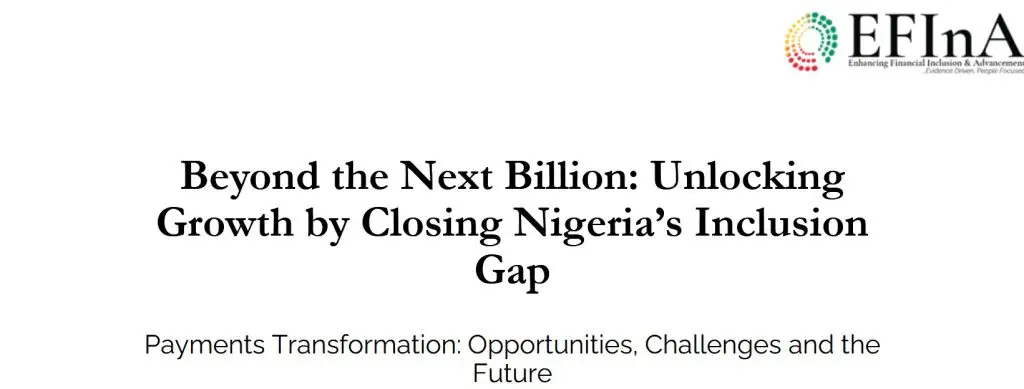
Nigeria’s Hidden ₦130 Billion Fintech Goldmine: Why Your Next Billion Users Aren’t Where You Think Download the Full Report Here Nigeria’s fintech success story is impressive—but incomplete. While the country ranks 6th globally in real-time payments volume with 7.9 billion transactions, a massive opportunity lies hidden in plain sight: 53.8 million payment-excluded adults representing an […]
Nigeria’s Financial Health Crisis: A Nation Living on the Edge
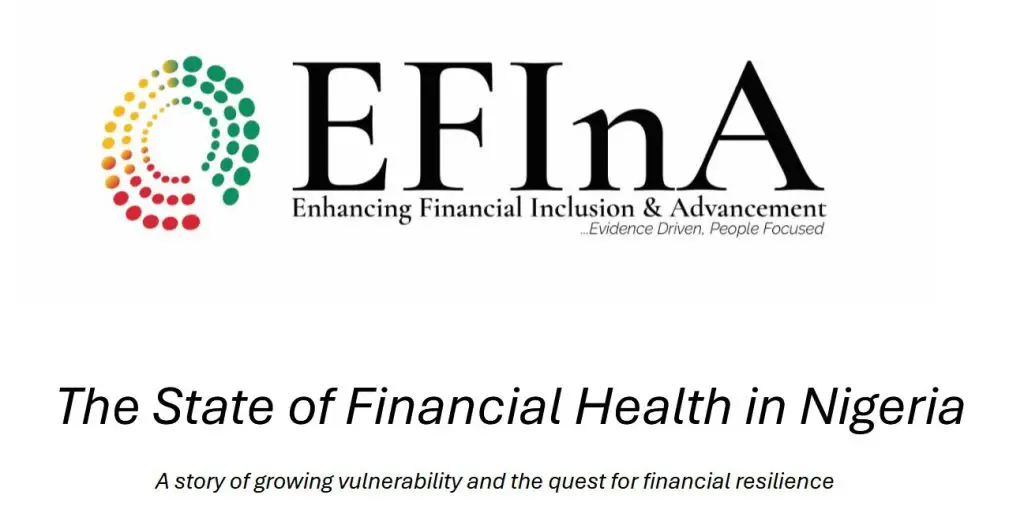
Nigeria’s Financial Health Crisis: A Nation Living on the Edge Download the Complete Report The alarming reality behind Nigeria’s financial inclusion success story Nigeria’s financial inclusion journey has been hailed as a success story across Africa. With impressive growth in digital payments and account ownership, the numbers paint a picture of progress. But beneath these […]
From the EFInA webinar on “Sustaining Financial Health: Understanding and Combating Investment Scams”
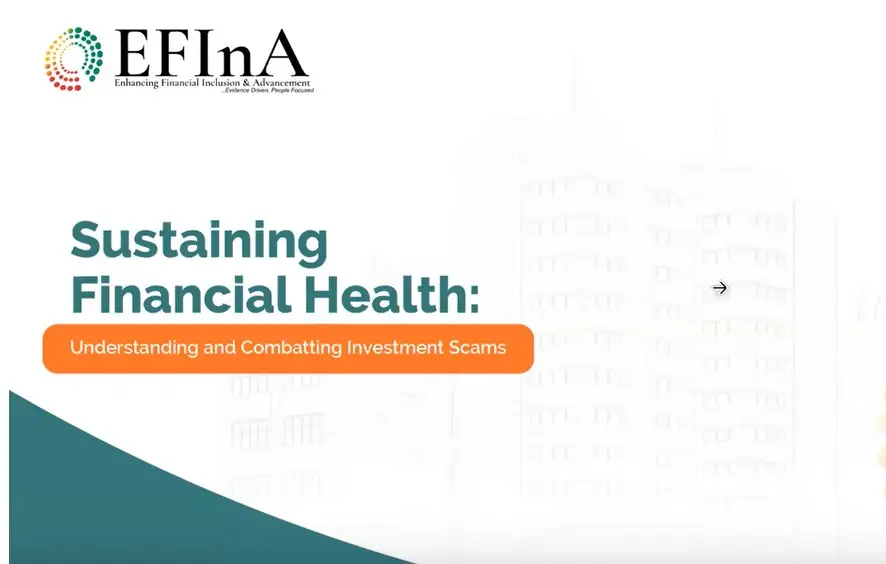
CBN 2025 Review of Automated Teller Machine (ATM) Transaction Fees: Misconceptions and Realities
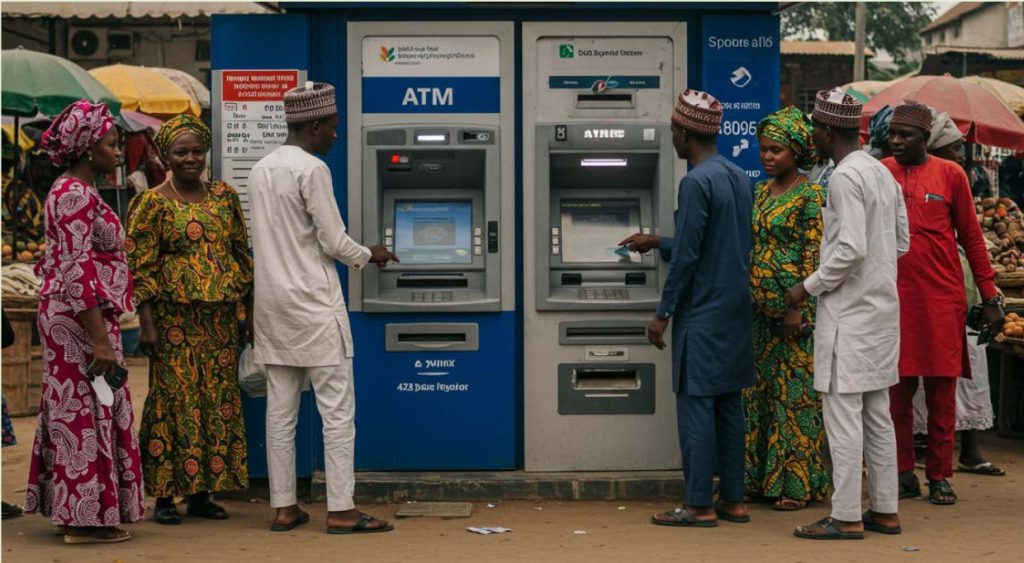
On February 10, 2025, the Central Bank of Nigeria (CBN) released a circular revising Automated Teller Machine (ATM) withdrawal charges, set to take effect from March 1, 2025. This publication offers a concise overview of the circular, clarifying its key provisions and dispelling common misconceptions. It explores the policy’s broader implications for financial inclusion, low-income […]
EFInA Unveils Refreshed Brand Identity and New Corporate Strategy at Stakeholder Event in Lagos

Lagos, Nigeria, February 21, 2025 Enhancing Financial Inclusion and Advancement (EFInA), Nigeria’s leading market facilitator for financial inclusion, recently hosted a landmark stakeholder event in Lagos, marking the unveiling of its refreshed brand identity, new five-year corporate strategy, and the introduction of its new Chief Executive Officer, Foyinsolami Akinjayeju. Under the theme “Beyond Financial Inclusion: […]
Request for Proposal for Access to Financial Services in Nigeria 2025 Survey
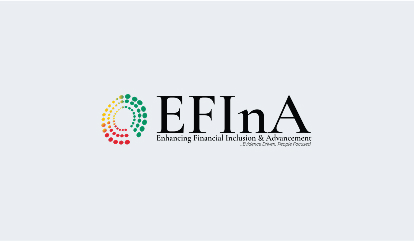
In pursuit of our goal of providing credible market information on the Nigerian financial sector, EFInA launched a groundbreaking initiative to study Nigeria’s financial service demand. The first national survey of this scope, the 2008 Access to Financial Services in Nigeria (A2F) survey, provided insights into how consumers manage their financial lives. Further surveys were conducted […]
Call for a Media Partner

Background Over the last fifteen years, EFInA has conducted the Access to Financial Services in Nigeria (A2F) survey in pursuit of our goal of providing credible market information on the Nigerian financial sector. The demand-side survey conducted biennially, provides insights into how consumers manage their financial lives. Data from the survey is used by a diverse […]
Call for a Web Developer

BACKGROUND Enhancing Financial Innovation & Access (EFInA) is a financial sector development agency with a mission to make Nigeria’s financial system work better, especially for the poor, by facilitating the emergence of an all-inclusive, growth-promoting financial system. EFInA’s website is a key platform for stakeholders engaged and enabling them to benefit from EFInA’s market systems […]


